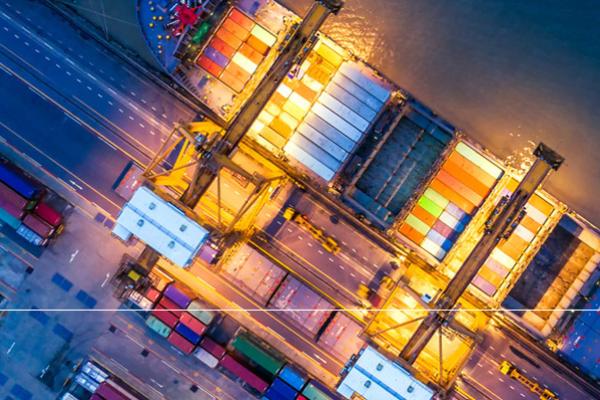Insights on Customs & Import Compliance
313 total results. Page 4 of 13.
As President-elect Trump prepares to take office on January 20, the construction industry must anticipate shifts in trade policy, particularly concerning tariffs. These changes are expected to have significant implications for various sectors, including energy and clean technology.
As President-elect Trump prepares to take office for a second term, his presidency will undoubtedly reshape US international trade policy, impacting US and foreign manufacturing. We can expect that his administration will implement new and increased tariffs. Whether those tariffs come in the form of universal tariffs, tariffs targeted to a few countries, industries or products, or tariffs targeted to certain companies will likely be known once Trump assumes office. The solar industry, particularly solar products originating from China, is expected to be a focus point of potential future tariff measures.
As President-elect Donald Trump prepares to assume office on January 20, numerous tariff proposals have already been put forward that could significantly impact the electric vehicle (EV) and battery supply chain industry. Differentiating between the potential for immediate tariff actions and those requiring more time to implement is critical for companies that are in preparation of such actions.

Welcome to the January 2025 issue of “As the (Customs and Trade) World Turns,” our monthly newsletter where we compile essential updates from the customs and trade world over the past month. We bring you the most recent and significant insights in an accessible format, concluding with our main takeaways — aka “And the Fox Says…” — on what you need to know.
A quick glance on the Zero Emission Transportation Association (ZETA) homepage reveals an impressive list of well-known corporate icons of the electric vehicle (EV) world.

Welcome to the December 2024 issue of “As the (Customs and Trade) World Turns,” our monthly newsletter where we compile essential updates from the customs and trade world over the past month. We bring you the most recent and significant insights in an accessible format, concluding with our main takeaways — aka “And the Fox Says…” — on what you need to know.
Most fashion, beauty, and retail companies depend heavily on global supply chains to produce products sold in the United States, but with significant tariff increases looming and an unpredictable trade landscape, companies need to reassess sourcing and manufacturing strategies. Countries that were traditional sources of lower cost and high-quality products could be the target of tariffs under President-elect Trump’s proposed tariff policies. We explore scenarios for these tariffs, the impacts on the fashion, beauty, and retail industries, and what companies can do to mitigate the impacts of the potential tariffs.
Join Birgit Matthiesen and James Kim for a webinar with the Canadian Transporation Equipment Association.
Join Angela Santos and James Kim for a webinar on the solar supply chain.

Welcome to the November 2024 issue of “As the (Customs and Trade) World Turns,” our monthly newsletter where we compile essential updates from the customs and trade world over the past month. We bring you the most recent and significant insights in an accessible format, concluding with our main takeaways — aka “And the Fox Says…” — on what you need to know.
In the latest installment of Five Questions, Five Answers, host Birgit Matthiesen is joined by Mr. Colin Bird, Canada’s Consul General in Detroit, Michigan. Consul Bird serves as Canada’s top representative for a large portion of the Great Lakes region.
The annual Battery Show and Electric Vehicle (EV) Technology Expo has become a must-attend event for the electric mobility industry. Now in its 14th year, the conference is billed as “North America’s largest advanced battery event,” hosting more than 19,000 attendees and over 1,150 exhibitors.
In the latest installment of Five Questions, Five Answers, host Birgit Matthiesen is joined by colleagues Dan Renberg, former member of the Board of Directors of the Export-Import Bank of the United States, and Kelsey Griswold-Berger, former long-time Congressional senior staff member.
Just two weeks before the November elections, podcast host Birgit Matthiesen gathers her colleagues to talk US trade policy.

Welcome to the October 2024 issue of “As the (Customs and Trade) World Turns,” our monthly newsletter where we compile essential updates from the customs and trade world over the past month.
Join Antonio Rivera as he speaks on EV Import Tariffs at the Battery Show North America 2024.
Many e-commerce retailers are closely monitoring increasing bipartisan criticism of the Section 321 de minimis program.

Welcome to the September 2024 issue of “As the (Customs and Trade) World Turns,” our monthly newsletter where we compile essential updates from the customs and trade world over the past month.
Welcome to the August 2024 issue of “As the (Customs and Trade) World Turns,” our monthly newsletter where we compile essential updates from the customs and trade world over the past month.
ArentFox Schiff James Kim and Birgit Matthiesen speak to members of the Truck Trailer Manufacturers Association (Truck Trailer Manufacturers Association, Inc.) on Thursday August 8, 2024.
Since the inception of the Uyghur Forced Labor Prevention Act (UFLPA), importers globally have started to become acutely aware of potential forced labor risks hidden beneath intricate supply chains.
Join Lucas Rock as he speaks on a panel at the American Apparel & Footwear Association’s upcoming Traceability & Sustainability conference.
On the penultimate day of its term, in Loper Bright v. Raimondo, the US Supreme Court overturned Chevron deference, which required that courts defer to a federal agency’s interpretation of the relevant law, as long as that interpretation was reasonable.
Customs Practice Leader and AFS Forced Labor Task Force Leader Angela M. Santos was quoted regarding the recent US Department of Homeland Security Uyghur Forced Labor Prevention Strategy Update.
Welcome to the July 2024 issue of “As the (Customs and Trade) World Turns,” our monthly newsletter where we compile essential updates from the customs and trade world over the past month.